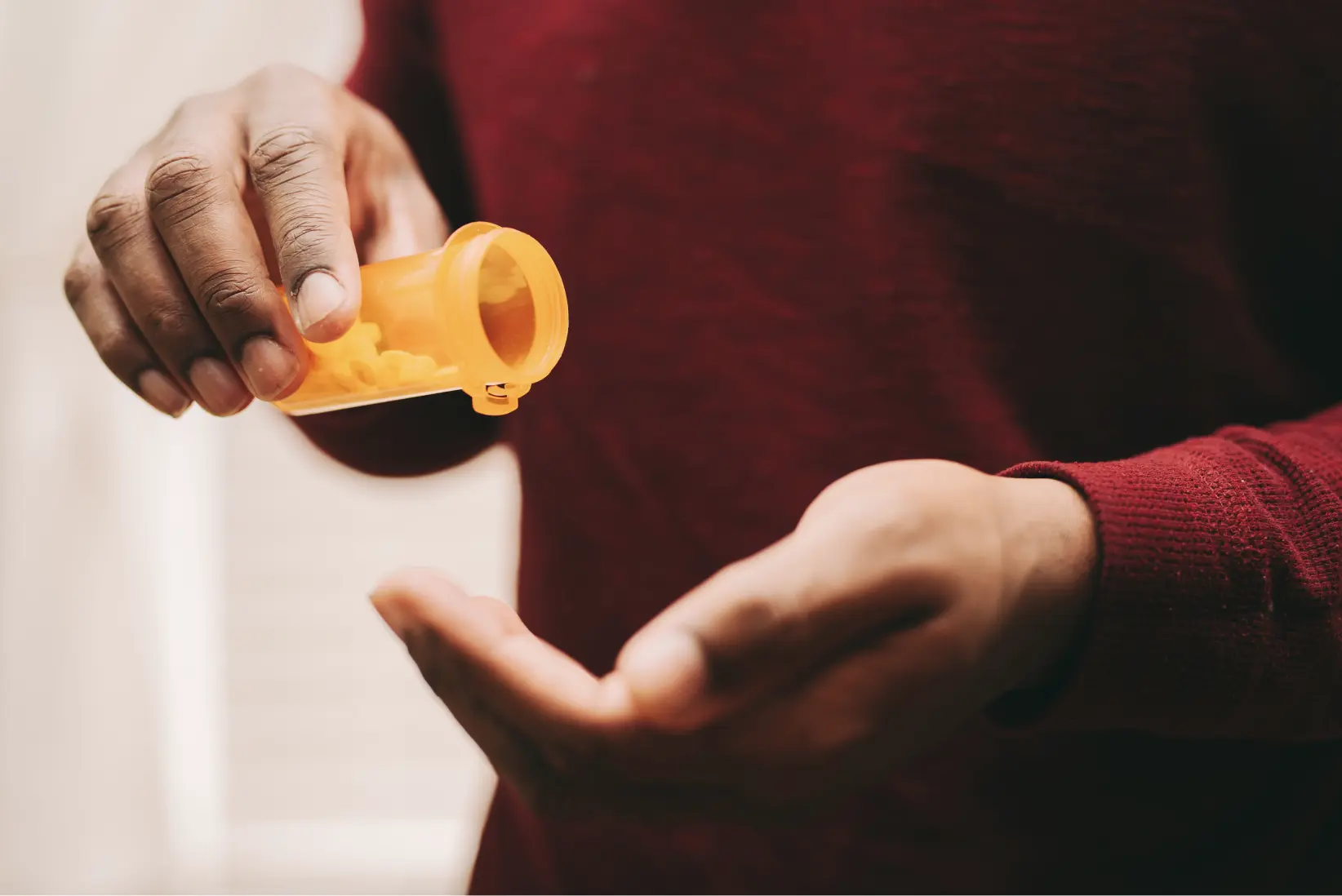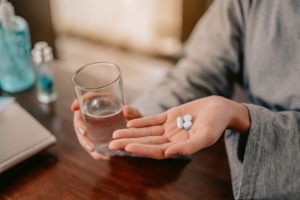Most people think of illegal drugs when they hear “drug abuse,” but prescription drugs can be just as dangerous.
In fact, according to the National Institute on Drug Abuse, more than half of young adults aged 18-25 have misused a prescription drug at least once. Prescription drugs are also the second-most abused drugs by the youth in the US after Marijuana.
Read on to learn what prescription drug abuse is, its signs and symptoms, and measures that can prevent prescription drug abuse.
What Qualifies as Prescription Drug Abuse?
Prescription drug abuse is the intentional or unintentional use of prescription medication in a way that deviates from the prescribed instructions. Prescription drug abuse can lead to serious health consequences, including overdose and death.
Common examples of prescription drugs that are abused include opioids (painkillers), stimulants (such as Adderall and Ritalin), and sedatives (such as Valium and Xanax). Prescription drug abuse is a significant problem in the United States, and the abuse rates have increased in recent years.
What are the signs of prescription drug abuse?
Many signs can indicate someone is abusing prescription drugs. These include but are not limited to the following:
-Taking more of the medication than prescribed
-Excessive mood swings or changes in behavior
-Lying or being secretive about drug use
-Stealing or forging prescriptions
-Selling prescriptions
-Crushing pills and snorting them
-Injecting crushed pills
Other symptoms that may indicate prescription drug abuse include:
- Slurred speech and cognitive impairment while under the influence
- Difficulty concentrating on tasks
- Extreme anxiety and paranoia
- Euphoria
- Dizziness
If an individual notices any of these signs in themselves or someone they know, it’s essential to seek help. Prescription drug abuse is a severe problem that can lead to addiction and other serious, possibly fatal problems.
Consequences of prescription drug abuse
While the short-term effects of prescription drug abuse may seem relatively harmless, the long-term consequences can be much more severe.
Prescription drug abuse can lead to several serious consequences, including:
- Health problems. Prescription drug abuse can have many dangerous side effects, including organ damage, respiratory problems, and seizures.
- Addiction. People who abuse prescription drugs are at high risk of developing an addiction to the drugs. Extreme dependence on prescription drugs may also complicate the resolution of whatever genuine medical condition they were trying to treat since they’ll require more doses to the point where the medications become ineffective.
- Overdose. Prescription drugs can be deadly in high doses, and people who abuse them are at risk of overdosing. Overdosing may lead to chronic conditions or fatalities unless the victim does not get urgent medical help.
- Death. Prescription drug abuse may lead to severe organ damage, and without appropriate intervention to stop use and treat the damaged organs, extreme suffering and fatalities may ensue. Similarly, addicted individuals may also die from overdoses even if they never intended to hurt themselves.
- Increased likelihood of committing crime(s). Prescription drug abuse can lead to financial ruin due to the high cost of these drugs. While some individuals can manage to finance their addiction comfortably, most cannot and may turn to crime or other social ills to afford the drugs.
- It may serve as the gateway to more potent and illegal drugs. As mentioned above, a continuous abuse of prescription drugs may result in the drugs becoming ineffective, in which case addicted individuals may turn to “stronger” alternatives to achieve the desired high or more.
Who is at risk for prescription drug abuse?
Various factors can contribute to an individual’s risk of developing a prescription drug abuse problem. Some of the most common ones include:
- Having a history of substance abuse or addiction: People with a family history of alcoholism or other drug abuse are more likely to develop problems with prescription drugs.
- Mental health issues: People with depression, anxiety, or other mental health disorders are more likely than others to abuse prescription drugs.
- Stressful life circumstances: People going through a challenging life event-such as a divorce, the death of a loved one, or a job loss-are more likely to turn to drugs to cope.
- Access to drugs: People who have easy access to prescription drugs-either because they have their prescriptions, fake prescriptions, or know someone who does-are more likely to abuse them.
Preventing prescription drug abuse
The first step to preventing prescription drug abuse is to understand and be alert for any signs of prescription drug abuse.
Other important tips to prevent prescription drug abuse include the following:
Individuals should keep track of all prescriptions and ensure they only take the prescribed amount.
Only take prescription medications as prescribed by a doctor. Do not use more or less of the medication than prescribed, and do not take it for longer or shorter than recommended.
If there are any leftover prescription medications, individuals should dispose of them properly and fast. Do not keep them around “just in case” they might be needed again; this can lead to temptation and the opportunity to abuse prescription drugs.
Finally, individuals should talk to their doctor about any concerns they may have about taking prescription medications. If the matter is justifiable (i.e., high risk of developing an addiction), the doctor can help them find other ways to manage their condition without resorting to drugs.
A less-mentioned preventative measure is educating and sensitizing prescription drug abusers and those at risk on the short-term and long-term adverse effects of prescription drug abuse.
How to get help if an individual or someone they know is abusing prescription drugs?
If individual suspects that they or someone they know is abusing prescription drugs, there are a few signs to look for:
- Changes in behavior: If the person is acting differently than usual, it may be a sign that they are abusing prescription drugs. Note any changes in mood, energy level, sleep patterns, or appetite.
- Lying or being secretive: If the person starts lying about their whereabouts or what they’re doing, it may be a sign that they’re trying to cover up their drug use.
- Problems at work or school: If the person’s performance at work or school starts to suffer, it may be a sign that they’re using drugs.
- Financial problems: If the person starts having financial difficulties, there’s a chance it could be due to them spending money on drugs instead of other essentials.
If there’s reasonable cause for suspicion that someone is abusing prescription drugs, don’t hesitate to reach out for help. Many effective resources are available to help those struggling with prescription drug addiction, but the first step begins with an individual acknowledging they need help.
We Can Help
It’s essential to seek help as soon as the signs of prescription drug misuse become apparent. Drug abuse can lead to serious health problems, relationship issues, and financial difficulties, which worsen with time, so don’t wait too long to get help.
Prescription drug abuse is preventable and treatable with the right support and guidance. Visiting a prescription drug addiction treatment center can help people face their substance use disorder. Bellagio RTC is here to support those struggling as they face their addiction. Please reach out to learn more about our services and how we can help.




